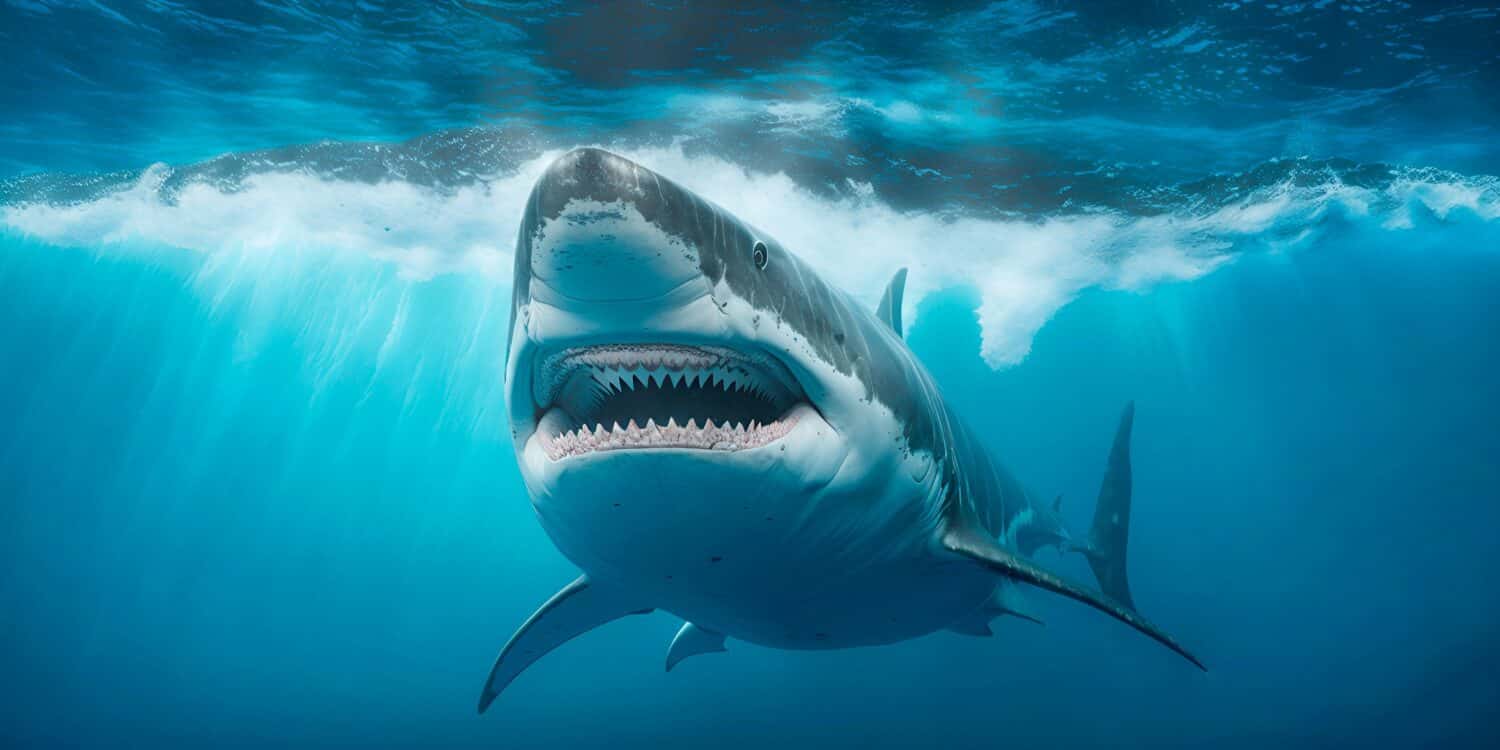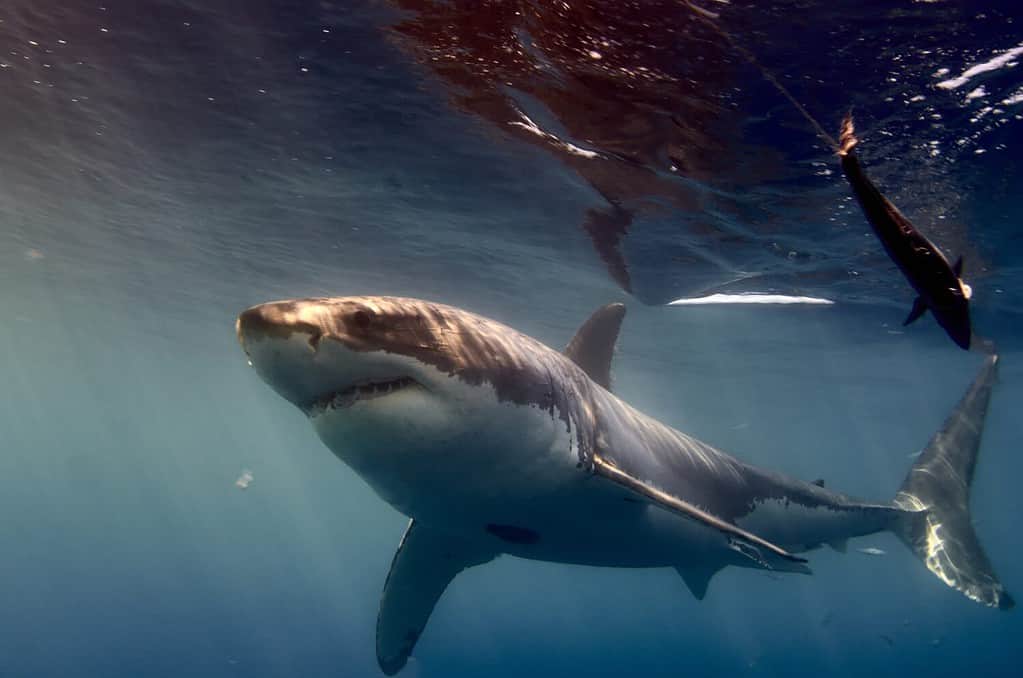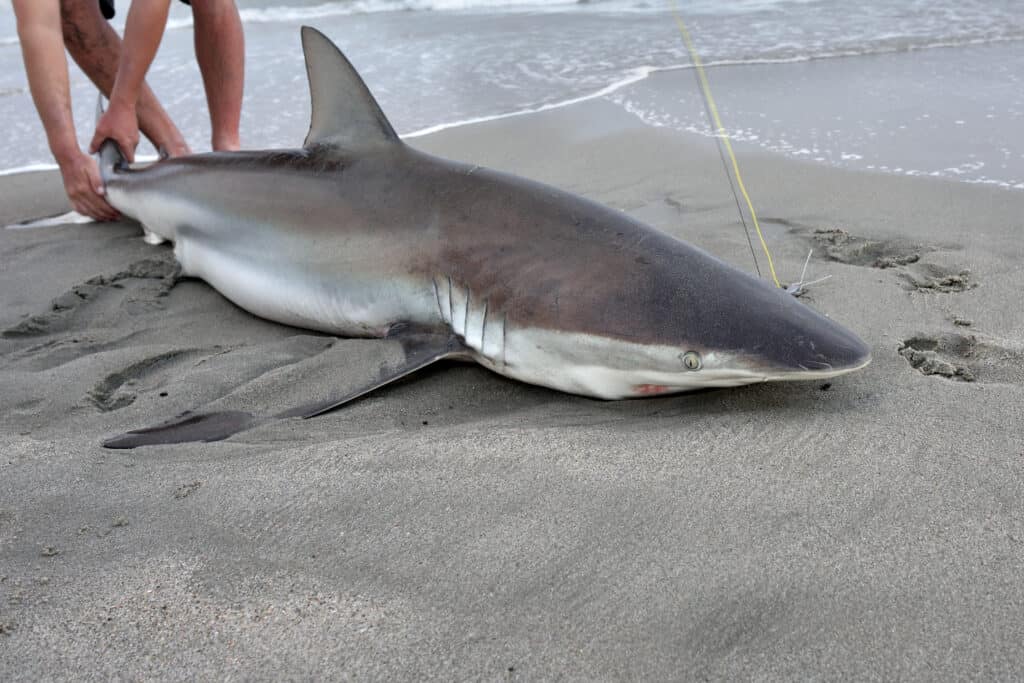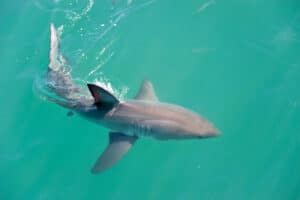Continue reading for our analysis...

In July 2015, a 7-foot-tall young great white shark was found beaching itself on a beach on Monomoy Island. Beach-goers stood by in awe, having no idea what they should do. Although most people are scared of sharks, individuals on the beach knew this animal needed their help.
We have a video of the event for you below. The comments are quite interesting, as many are shaming the beach-goers for trying to help the shark. Others are making comments about them not helping enough. While some comments have opinions about people attempting to help a deadly animal.

Great whites are rarely close enough to shore to beach themselves.
©Sergey Uryadnikov/Shutterstock.com
Dr. Skomal is a marine biologist and happened to be at the beach that day. Skomal tagged and dubbed the shark Jameson before he was revived and let go into the water. The Atlantic White Shark Conservancy just revealed that Jameson has come back to Cape Cod numerous times over the years!
On June 29, 2016, he was discovered on a receiver off Monomoy National Wildlife Refuge!
Why Do Sharks Beach Themselves? Is This Normal?

Did you know that the great white shark is the biggest predatory fish on the planet?
©Wirestock Creators/Shutterstock.com
We still are unsure exactly why these ocean creatures beach themselves. Thankfully, scientists have a few ideas. The majority of sharks, they think, only do this on accident. They can also beach themselves after suffering from a major physical injury.
Many sharks have been discovered on beaches with fishing hooks connected to them. This is a common reason why great white sharks, and sharks in general, beach themselves. Fishermen often get nervous about bringing in a shark and will let it go too close to the shore.
A great white shark that has been beached may end up on the coast sometimes after trying to grab something to eat in shallow waters. Although we are unsure of the precise cause of this shark’s beaching, it is certainly quite unusual to observe a beached shark in comparison to whales and dolphins.
What Do I Do If I Find A Beached Shark?

Several types of sharks will beach themselves.
©Oleg Znamenskiy/Shutterstock.com
If you come across a shark beached on the coast, it is not advised that you attempt to save it. The majority of people who read our posts on A to Z Animals are aware of the value of sharks, and we would all welcome the chance to save one.
With that being said, just like any other wild animal, humans never know how a shark will behave. Therefore it’s essential that an individual with relevant experience assists the shark. To get the right information, you ought to notify a professional.
If you do feel the need to act quickly, you must under no circumstances try to assist a shark by yourself. Although it would be extremely unlikely for a shark to strike while they’re struggling to breathe, your main concern would be blood loss from a single bite wound.
Luckily, shark bites are much less frequent than most people realize. Numerous beached sharks have recently been rescued with little to no risk of people getting wounded while doing so.
Thank you for reading! Have some feedback for us? Contact the AZ Animals editorial team.







